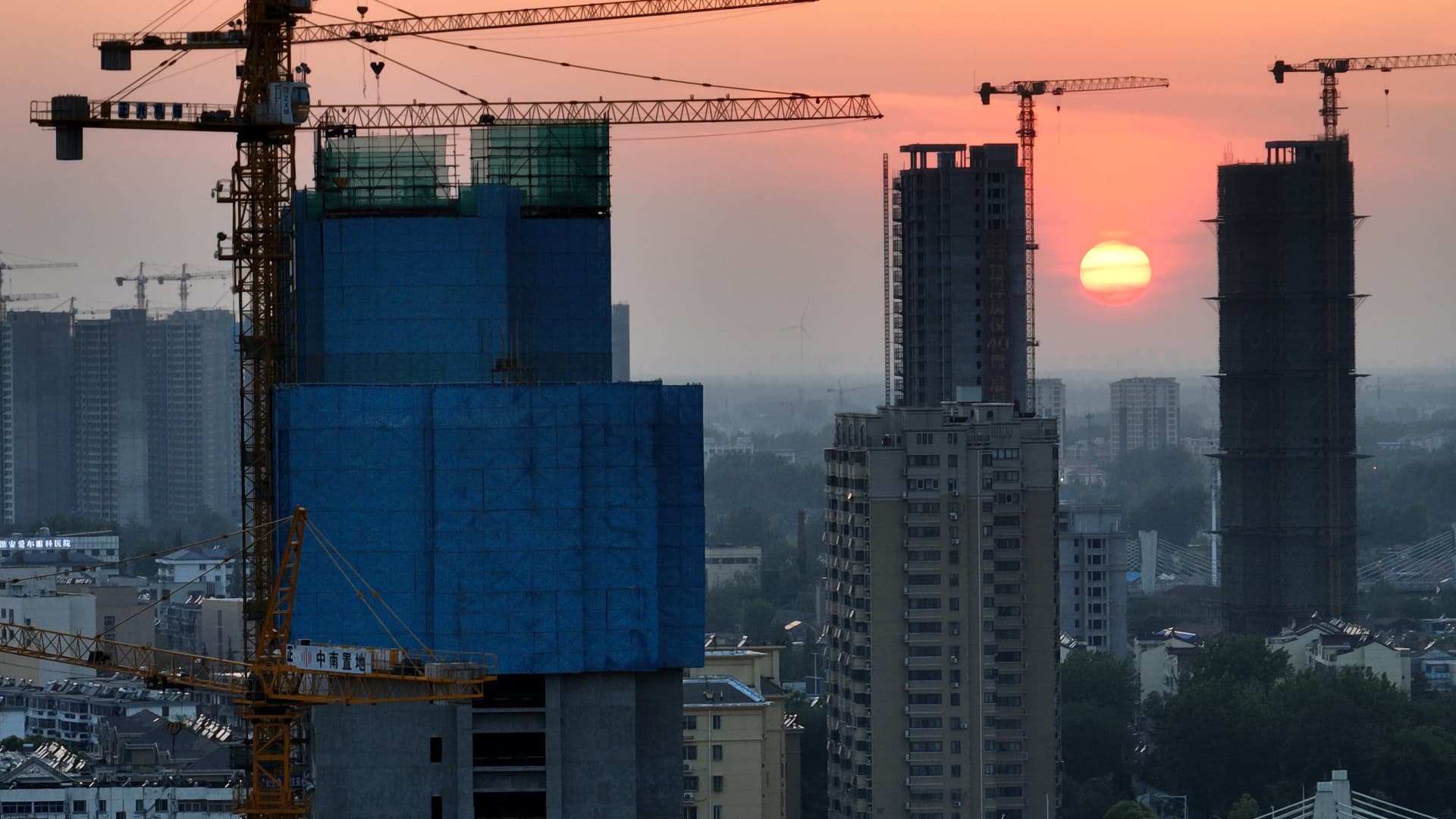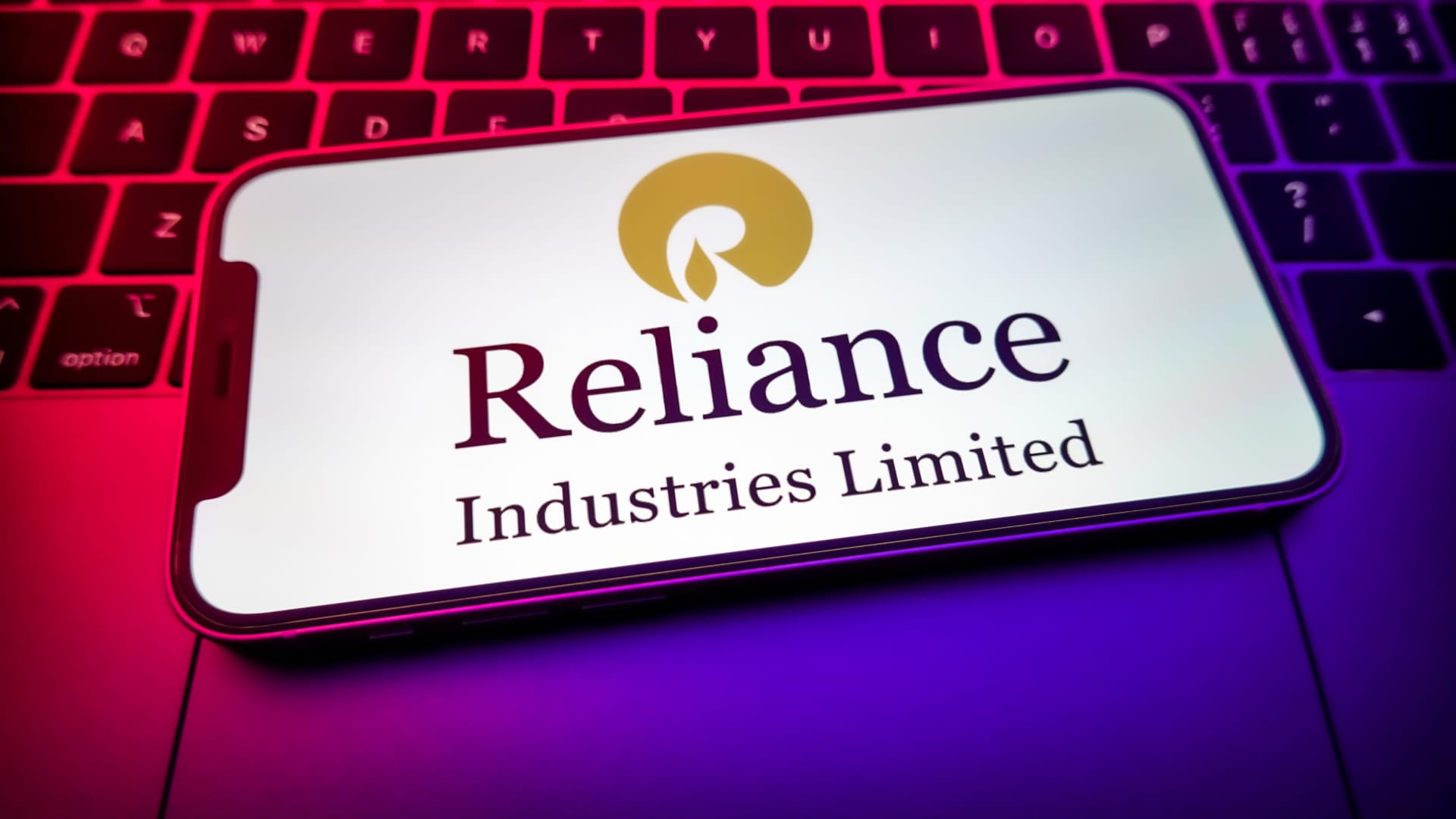
Real estate and related industries account for more than a quarter of China’s economy, according to Moody’s estimates.
CFOTO | Future Publishing | Getty Images
BEIJING — Chinese real estate defaults have increased so much that Goldman Sachs analysts have shifted to their worst-case scenario for the riskiest part of the market.
Twenty-two China high-yield bond issuers, all related to the property sector, have either defaulted on their U.S. dollar-denominated bonds or deferred repayment with bond exchanges since the start of this year, analysts Kenneth Ho and Chakki Ting wrote in a report Friday.
“Given the pick up in stresses, we raise our FY22 China Property HY default rate forecast to 31.6% (from 19.0% previously), which was our previous bear case assumption,” the analysts said.
They also raised their estimate for the Asia high yield corporate default rate to 15.5%, up from 9.3% previously, since Chinese property dominates the category. The new forecast is slightly lower than the 17.8% default rate last year, according to the report.
Real estate and related industries account for more than a quarter of China’s economy, according to Moody’s estimates.
Beijing has tried to tamp down on speculation in its once-hot property market. In the last two years, regulators have focused specifically on reducing property developers’ reliance on debt for growth. Some companies have adjusted, but others like Evergrande have worried investors with the size of their debt and potential fallout from large-scale default.
“We are unlikely to see a broader recovery in China Property HY until property sales begin to show signs of a rebound,” the same Goldman analysts wrote in a separate report Friday.
“We believe further easing measures are likely required before property sales can recover, particularly with Covid restrictions in place across a number of cities in China,” they said, noting they expect stronger developers will perform much better than weaker ones in the current environment.
Since March, mainland China has faced its worst Covid outbreak in two years, resulting in travel restrictions and stay home orders in many parts of the country, especially the metropolis of Shanghai.
With agents and potential buyers unable to view properties — on top of an already weak market — sales have plunged.
Daily property transaction volume across 30 major cities was down 50% year-on-year in May, according to separate Goldman analysis released Monday.
This month, Chinese authorities cut mortgage rates and a benchmark for those rates. Several local governments have also reduced down payments or announced other measures to make it easier to buy property locally, according to state media.
The central government’s rate cuts send a significant signal of policy support for the property market, Larry Hu, chief China economist at Macquarie, said in a note Friday.
He pointed out that for the past two years, Beijing’s property policy has been so tight that the average mortgage rate has been higher than the average loan rate, which he said is “highly unusual.”
April will likely have been the low point for the property sector this year, Hu said. In his view, unemployment has climbed so high, while property and credit demand have fallen so much, that “policymakers have no choice but to take actions for saving the housing market.”




